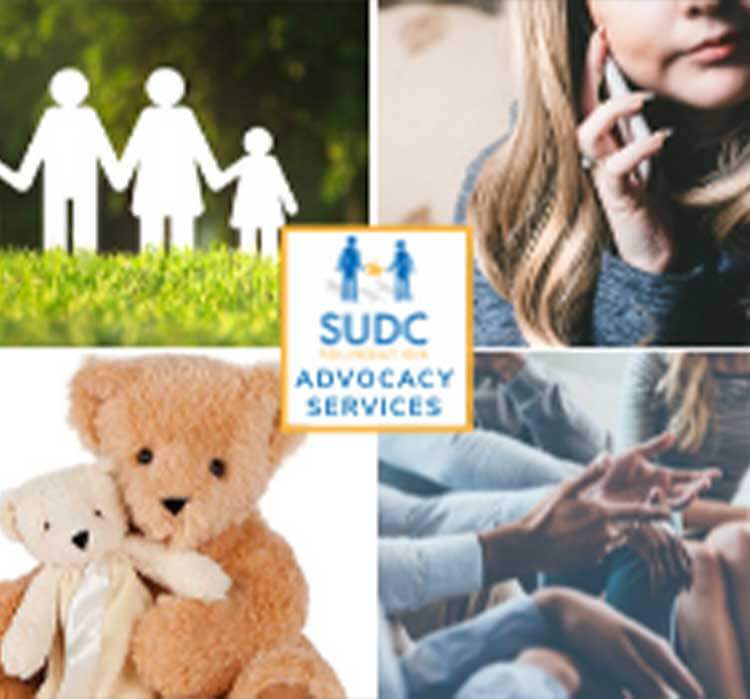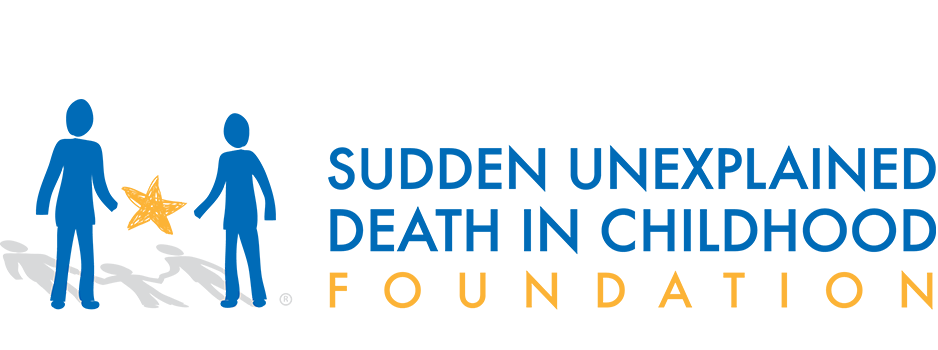11 Jun SUDC Foundation Advocacy Services: Comprehensive Support for SUDC Families

At the very core of the mission of the SUDC Foundation is to support those affected by sudden unexpected or unexplained death in childhood, especially families. As we spread awareness of SUDC and the work of the SUDC Foundation, one might only think of the important services we offer to support the immense emotional grief of those affected. While it is true that the SUDC Foundation strives to support these profound needs, we also provide crucial help in navigating the surreal, confusing and often overwhelming experience of navigating a child’s death investigation.
Death investigations of unexpected child deaths are not like the TV shows that wrap up an investigation in an hour – and always find an answer. On average, families wait three months to receive the results of their child’s investigation and about 80% of our families conclude that investigation without clarity on what caused their child’s death. The wait itself can feel excruciating.
In addition, the experience of trying to understand the process and contact with the professionals involved becomes part of the memories that stay with families for life. The SUDC Foundation understands the toll the process takes on a family – even when the investigation is of the highest quality and the most efficient in timeliness. We also understand that professionals want to help the families as much as they can – but they often may not understand the many needs the families have at this time. Therefore, to better support families, the SUDC Foundation offers a variety of Family Advocacy services to address the particular needs of this time period and advocates for them. This includes the death investigation as well as the multiple investigations/inquiries that may occur in parallel whenever a child dies unexpectedly such as the police, child welfare, media reports and medical screening for at-risk relatives, among others.
These services were developed through lessons learned from supporting more than 1,000 families. We believe this spares the family additional stress and trauma that these investigations can bring. We believe our advocacy services are one thing that sets the SUDC Foundation apart from other organizations supporting bereaved families. In fact, in a 2018 survey sent to the families we support and our professional colleagues, our Family Advocacy was the most valued service cited by both groups.
It is important that the SUDC Foundation’s advocacy services are tailored to the individual needs of the specific family. We are all different and so are our situations but the most frequent stress we hear is that families feel alone and don’t understand what they need to do for themselves. So, we act as their advocate and as a liaison between the family and the death investigation professionals, helping families understand the process, communicating the resources available to support investigations and assisting the family to access research opportunities and follow-up medical care for surviving family members.
Here are some specific examples of how we help our families when they need us most:
- Make difficult phone calls to the medical examiner or coroners office on the family’s behalf to check on the status of a child’s investigation and pursuing answers to the family’s questions
- Guide the family on their rights in the process, options for receiving additional information and addressing their concerns and connecting them with the professionals best suited to help them
- Contact the medical examiner or coroner’s office to learn more about how long the autopsy will take, how the report will be delivered to the family and request the office deliver it in the way that is most comfortable and sensitive for the family
- Review the autopsy report on behalf of the family and share as much or as little of the findings as the family desires and in a way that is most comfortable and easy to understand; helping them understand terminology and avoid misunderstandings
- Provide the family with their child’s final cause of death when the medicolegal death investigation office refuses to do so
- Provide information on research opportunities to better understand SUDC
Learn what specimens are retained as part of the investigation process, how long they are kept, managing their release when needed and any paperwork or fees involved in the event the family is interested in DNA banking, genetic testing and/or future research to help uncover additional information to better understand the child’s death and identify at-risk relatives - After learning an organ is not viable for a donation to a living person in need, work to ensure it is donated to SUDC-related research as the family desires
- For families who banked their child’s cord blood, coordinate efforts to donate the sample to SUDC-related research
- Assist communication with the families’ clinical providers, such as, their pediatrician or other medical professionals involved in caring for surviving family members and providing referrals to clinical specialists
- Educate local authorities on SUDC, especially when siblings have been removed from a home without supportive evidence because they felt “kids don’t just die” or assisting with multiagency accurate communication to support a thorough and fair investigation
- Work with local authorities when the investigation is completed to return the child’s personal belongings such as a favorite blanket or stuffed toy, that were initially removed as evidence
- Educate the family on the death investigation process and why, even the most difficult parts, are necessary to ensure the most accurate cause of death is attained, and remove unnecessary suspicion on the family.
- We are thankful to be able to use our years of experience to help families overcome the unique challenges that sudden child death forces us to address. And we are also grateful to the many families who have entrusted us with their personal struggles.
The services, as well as so many others, are offered to registered families at the SUDC Foundation at no cost.
Laura Gould Crandall, MA
Co-founder & President (retired)


